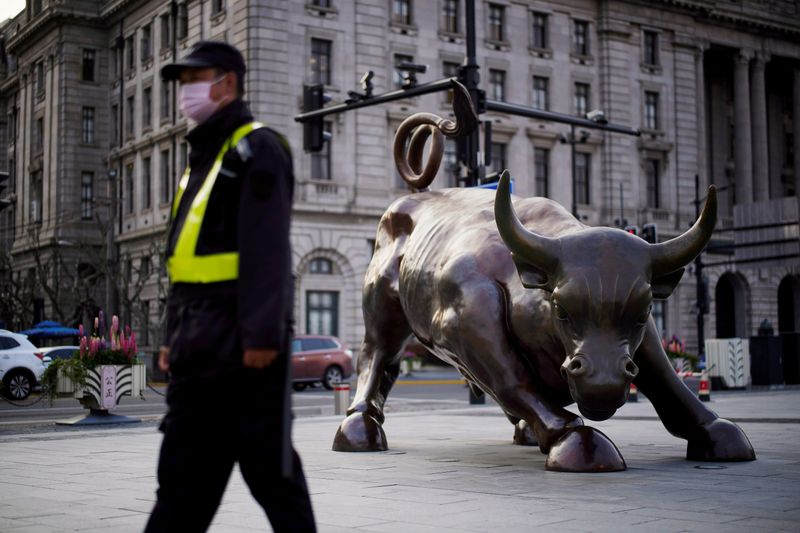By Ambar Warrick
Investing.com-- Most Asian stock markets rose on Tuesday amid growing expectations that U.S. interest rates will rise at a slower pace this year, although uncertainty over China’s economic reopening and a warning on a potential recession kept gains limited.
China’s Shanghai Shenzhen CSI 300 and Shanghai Composite indexes rose 0.2% and 0.7%, respectively, while Hong Kong’s Hang Seng index jumped 1.4%. But the three indexes slumped between 14% and 21% in 2022.
While the Chinese economy is expected to eventually bounce back on an economic reopening this year, analysts forecast near-term pain as the country grapples with a massive spike in COVID-19 cases.
Chinese President Xi Jinping also flagged continued challenges from COVID-19 in his new year’s address, which struck a more cautious tone than markets were expecting. Recent data showed that China’s manufacturing sector shrank for a fifth consecutive month in December.
China’s slowdown impacted several Asian economies dependent on the country in 2022, which in part played into a regional stock rout.
But regional stocks may be due for some relief amid growing expectations that the U.S. Federal Reserve will hike rates at a slower pace this year. A series of recent economic readings suggest that inflation in the country has likely peaked, which necessitates a less hawkish rhetoric from the central bank.
Focus this week is on the minutes of the Fed’s December meeting and nonfarm payrolls data for more cues on monetary policy. Rising U.S. interest rates weighed heavily on Asian stocks in 2022, with most major bourses ending the year in negative territory.
Markets are now pricing in an over 90% possibility that the Fed will hike rates by an even smaller 25 basis points in February.
Broader Asian stocks rose on Tuesday. India’s Nifty 50 and BSE Sensex 30 indexes rose 0.1% each after vastly outperforming their Asian peers in 2022.
The Taiwan Weighted index added 0.6%, while most Southeast Asian bourses also logged strong gains.
But sentiment was also dulled by a warning from the International Monetary Fund that at least a third of the world faces a potential recession this year, amid high inflation and rising interest rates.
Such a scenario, especially if China’s economic reopening is delayed further, could present more headwinds to Asian markets later this year.
